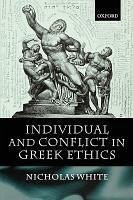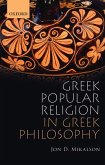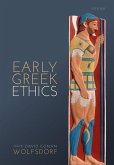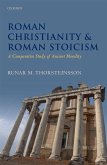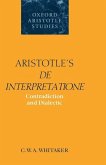Greek thinkers were not as a group convinced of the possibility of a harmony of one's happiness with full regard for the happiness of others and with conformity to ethical norms. On the contrary, Greek thinkers were well aware of,and took seriously, the idea that ethical norms can possess a force that does not derive from conduciveness to one's own happiness. Indeed, even Plato and Aristotle took it that under certain circumstances there can even be a clash between ethical standards and one's own well-being. The project of completely eliminating the possibility of such a clash came to full development not in the Classical period but rather in the ethics of the Stoics in the third century. Individual and Conflict in Greek Ethics argues that throughout Greek thought the concept of ethics as a source of obligations and imperatives can, in unfavorable circumstances, run counter to one's own happiness. In this sense Greek ethics has a shape similar to that of modern Kantian and post-Kantian thinking, and should not be seen as opposed to it.
White opposes the long-standing view that ancient Greek ethics is fundamentally different from modern ethical views. He examines the ways in which Greek ethics has been interpreted since the 18th century, and traces the history in Greek ethical thought of the idea of conflict among human aims, in particular the conflict between conformity to ethical standards and one's own happiness.
White opposes the long-standing view that ancient Greek ethics is fundamentally different from modern ethical views. He examines the ways in which Greek ethics has been interpreted since the 18th century, and traces the history in Greek ethical thought of the idea of conflict among human aims, in particular the conflict between conformity to ethical standards and one's own happiness.

